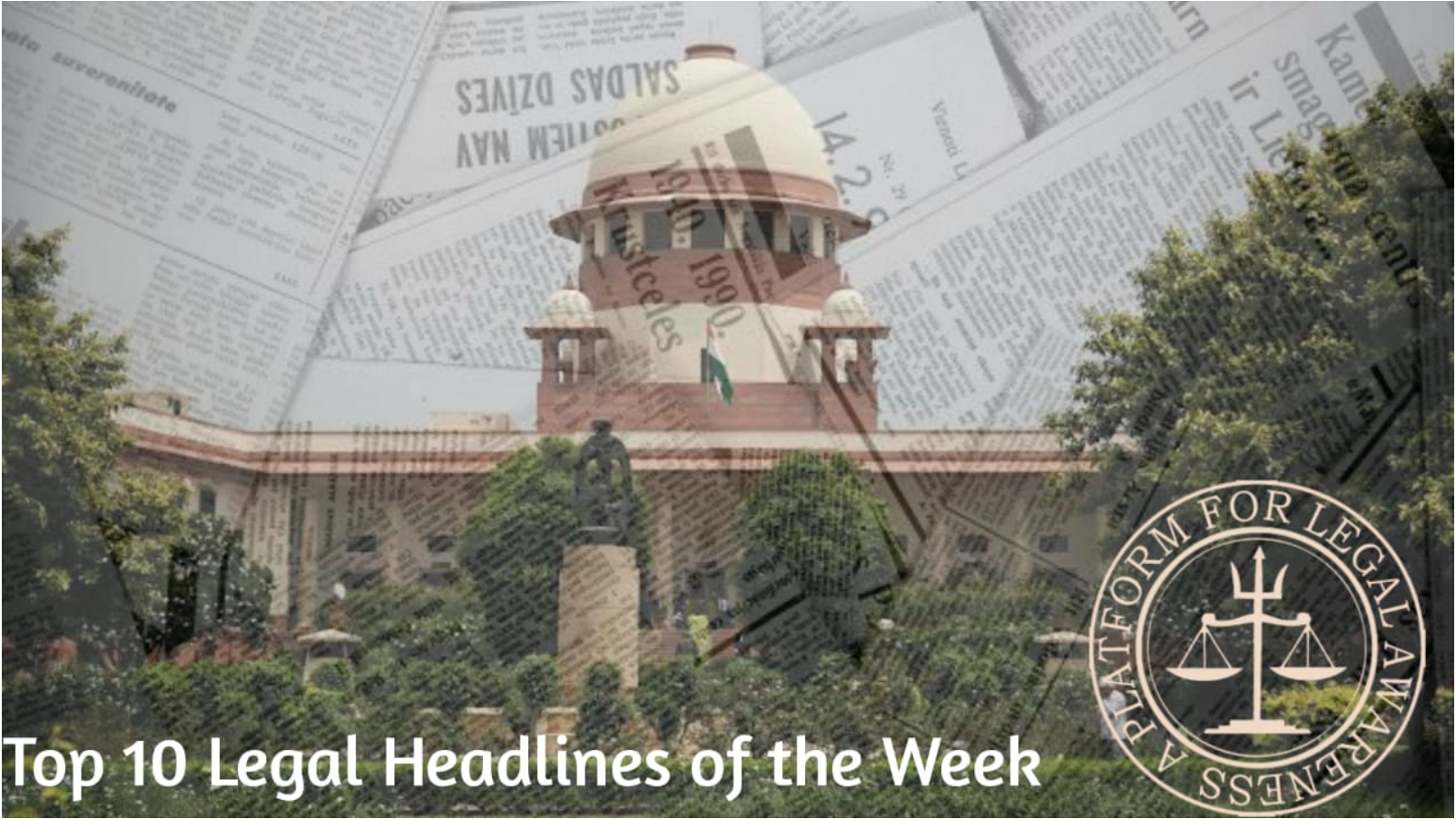1. Article 21 Has to Trump Article 19: Supreme Court on Free Speech Regulation
The Supreme Court has indicated that the right to life under Article 21 must take precedence over the right to free speech under Article 19 when speech threatens to undermine dignity or public order. During deliberations on regulating online content, the Court emphasised the need for constitutional compliance while ensuring that freedom of expression is not misused. Highlighting the prevalence of "free advisors" exploiting free speech, the Court proposed an open debate on guidelines to balance expression with accountability and ensure reasonable restrictions are meaningfully applied.
2. Supreme Court Declines Plea to De-Register AIMIM, Suggests Broader Challenge Instead
The Supreme Court refused to entertain a petition seeking the de-registration of the All India Majlis-e-Ittehadul Muslimeen (AIMIM), led by MP Asaduddin Owaisi. The Bench comprising Justices Surya Kant and Joymala Bagchi suggested that the petitioner challenge the broader issue of political parties invoking communal rhetoric instead. The Court implied that de-registration is a serious consequence and must be dealt with through appropriate, structured legal grounds rather than individual instances of alleged misconduct or speech.
3. Secretly Recorded Spouse Calls Admissible in Divorce Cases: Supreme Court
The Supreme Court has ruled that audio recordings of phone calls between spouses, even if secretly recorded, are admissible as evidence in divorce proceedings. The Court emphasised that while the right to privacy is protected, it cannot override the right to a fair trial, especially when one spouse seeks to establish cruelty or other grounds for divorce. The ruling clarifies that such recordings, if relevant and not fabricated, can be relied upon to substantiate allegations in matrimonial disputes.
4. Supreme Court Lays Down Guidelines for DNA Evidence Handling
The Supreme Court has issued detailed guidelines for the proper collection and preservation of DNA and other forensic evidence in criminal cases. Stressing the need for procedural safeguards, the Court observed that mishandling such evidence could compromise the fairness of trials. The directions were given while hearing an appeal in a 2018 Tamil Nadu rape and murder case that had resulted in a death sentence. The Court emphasised training for officers, use of certified labs, proper chain of custody, and timely storage to uphold the integrity of evidence.
5. Plea in Supreme Court Seeks NEET Re-Test for Students Affected by Power Outage
A petition has been filed before the Supreme Court seeking a re-examination for NEET UG 2025 candidates who faced power outages during the exam in Ujjain and Indore. The plea challenges a Madhya Pradesh High Court decision that denied relief to these affected students. Petitioners argue that the power failure severely disrupted their performance, compromising the fairness of the exam. Justice Surya Kant took note of the matter and directed that it be listed for hearing the following week, giving the students an opportunity to present their case before the court.
6. Supreme Court Upholds Bail in Rape-on-Promise-of-Marriage Case Involving Married Woman
The Supreme Court refused to cancel anticipatory bail granted to a man accused of raping a woman on the false promise of marriage, noting that the complainant was already married at the time of the alleged relationship. The Court observed that engaging in a sexual relationship outside her marriage amounted to an offence on the part of the woman as well. It emphasised that the facts did not support a straightforward case of rape and upheld the earlier grant of bail by the High Court.
7. Supreme Court Restores Child Custody to Mother Citing Mental Health Concerns
The Supreme Court reversed its earlier decision granting custody of a 12-year-old boy to his father, restoring it to the mother after an open court review hearing. The Court was persuaded by fresh psychological assessments indicating that the child was undergoing significant mental distress at the thought of being separated from his mother. Emphasising the paramount importance of the child’s welfare, the Court held that custody decisions must align with the best interests of the child, particularly their emotional and psychological well-being.
8. Constitution Bench to Hear Presidential Reference on Timelines for Governors’ Assent to Bills
A five-judge Constitution Bench of the Supreme Court is set to examine whether it can prescribe deadlines for the President and Governors under Articles 200 and 201 of the Constitution when granting or withholding assent to State legislation. The matter arises from a Presidential reference and touches upon growing concerns over delays by Governors in acting on Bills passed by State Assemblies. The Court will determine if such constitutional authorities can be directed to act within specific timeframes to uphold legislative intent and democratic processes.
9. Supreme Court Affirms Inheritance Rights of Tribal Women
The Supreme Court has ruled that tribal women cannot be denied their right to inherit ancestral property merely on the basis of unsubstantiated customs. Emphasising that customs must evolve with time, the Court held that in the absence of a codified personal law or a clearly proven custom excluding inheritance, decisions must be guided by justice, equity, and good conscience. The ruling marks a progressive step in safeguarding gender equality and property rights within tribal communities, reinforcing constitutional values over outdated practices.
10. Time-Barred MSE Debts Can Go to Conciliation, Not Arbitration: Supreme Court
The Supreme Court has clarified that disputes concerning time-barred debts of Micro, Small and Medium Enterprises can be referred to conciliation under the MSMED Act, 2006, but not arbitration. The Court held that while there is no legal restriction in the Limitation Act or the MSMED Act against initiating conciliation for such debts, arbitration proceedings cannot proceed once a claim becomes time-barred. This distinction strengthens the role of pre-arbitral conciliation in resolving commercial disputes involving MSEs.

